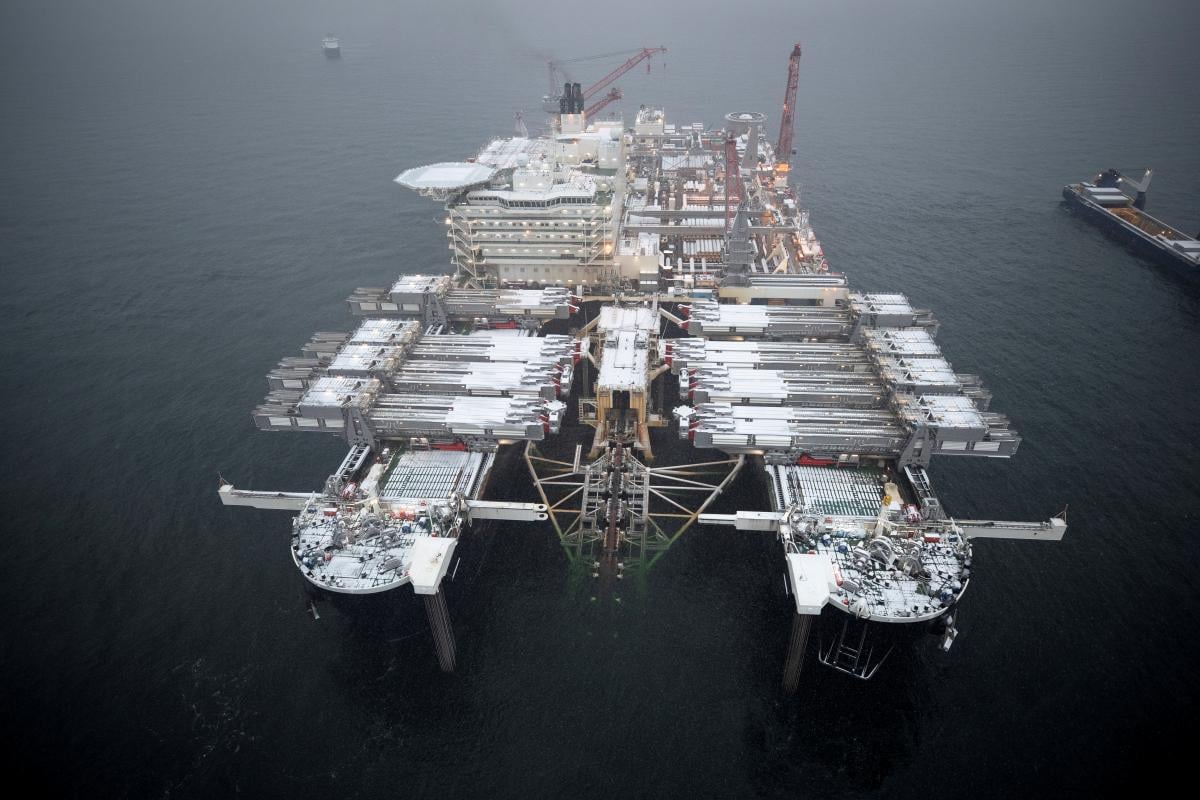
President Volodymyr Zelensky of Ukraine met with Robert Habeck, co-chair of Germany's Alliance 90/The Greens party, discussing the risks related to the implementation of the Nord Stream 2 project.
"Volodymyr Zelensky and Robert Habeck agreed that this is a geopolitical project, not an economic one," the president's press service reported Monday.
The two have also discussed the course of the German federal election campaign. Volodymyr Zelensky noted the positive dynamics of the party's electoral support and expressed hope for further fruitful cooperation with all German political forces, including Alliance 90/The Greens party.
Read also"Hybrid warfare tool": Rada urging U.S. to stop Russia's Nord Stream 2The Ukrainian leader thanked Germany for its continued support for Ukraine's territorial integrity and sovereignty, and welcomed Robert Habeck's decision to visit the line of contact in the east of the country.
"I highly appreciate your decision. You will be able to see with your own eyes the real picture of Russian aggression against Ukraine. I hope that what you saw in Donbas will help strengthen the position of your political force in support of Ukraine," the president said.
Volodymyr Zelensky and Robert Habeck also discussed Ukraine's European integration.
During the discussion of cooperation in the field of energy, the parties expressed mutual interest in the implementation of joint projects in support of the European Green Deal, as well as in the framework of the Energy Partnership between Ukraine and Germany.
Nord Stream 2: Background
- The Nord Stream 2 project envisages the construction and operation of two gas pipeline branches with a total throughput capacity of 55 billion cubic meters of natural gas per year from the coast of Russia through the Baltic Sea to Germany. It should connect Russia's Ust-Lug and Germany's Greifswald.
- This new pipeline bypassing Ukraine is to be built next to the existing Nord Stream 1 pipeline. The construction of the pipeline was expected to be completed before the end of 2019. The pipeline will be 1,220 km long.
- Russia's natural gas giant Gazprom is the founder of Nord Stream 2 AG.
- The project is being financed by European companies – France's ENGIE, Austria's OMV, Royal Dutch Shell, as well as Germany's Uniper and Wintershall.
- Ukraine stands against the construction of Nord Stream 2 as it will most likely lose its status of a gas transit country, while its potential revenue losses are estimated at US$3 billion annually. The project is also highly criticized by the U.S., Poland, and the Baltic States.
- The Nord Stream 2 gas pipeline has already been completed by more than 90%.
- The United States has imposed a series of sanctions on Nord Stream 2 and has repeatedly called on European allies and private companies to stop the related works.
- On January 7, 2021, a fund was established in Germany to support the completion of the Nord Stream 2 project.
- Eighteen companies have already refused to participate in the project or are planning to do so because of the sanctions.
- On February 6, 2021, Nord Stream 2 AG announced it would continue to lay the pipes as part of the project.
- On March 14, 2021, Executive Vice-President for the European Green Deal Frans Timmermans said that Europe did not need the Nord Stream 2 pipeline. Despite this, Germany continues to insist on the completion of the project.
- On March 19, 2021, U.S. Secretary of State Antony Blinken called on the companies involved in the construction of Nord Stream 2 to immediately halt laying pipes, threatening new sanctions.
- Ukrainian President Volodymyr Zelensky called Russia's Nord Stream 2 gas pipeline a trap for all countries across Europe.
- On April 20, 2021, German Chancellor Angela Merkel said Ukraine should remain a transit country for Russian gas to Europe, despite Germany's decision to complete the construction of the Russian Nord Stream 2 gas pipeline.
- In early May, Germany's Nature and Biodiversity Conservation Union (NABU) and Deutsche Umwelthilfe (Environmental Action Germany) filed a lawsuit with the Hamburg Administrative Court against the construction of the Nord Stream 2 gas pipeline in Germany's exclusive economic zone.
- On May 17, 2021, Germany allowed the construction of Nord Stream 2 to continue in its waters.

